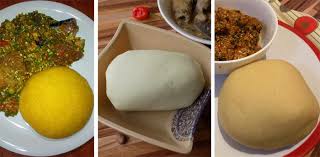Daud Olatunji
In January 2024, the National Bureau of Statistics (NBS) released data shedding light on the increasing cost of eating a healthy diet in Nigeria.
The average Nigerian now spends N858 per day, a significant surge from the N786 reported just a month prior, marking a 9.16 per cent increase.
This upward trajectory in expenses is reflective of a broader economic challenge, with inflation hitting an all-time high of 29.90 per cent by January 2024.
Delving into regional disparities, the data highlights the South West zone as the most expensive region for healthy dietary habits, with an average daily cost of N1045.
Following closely is the South East zone, recording an average of N986 per day. On the contrary, the North-West zone emerges as the most economically feasible, with a significantly lower daily average of N683.
Zooming in on specific states, Osun leads the pack with residents spending a staggering N1,090 on a portion of healthy food. Other South West states, including Ondo, Ekiti, Ogun, and Lagos, closely trail behind, underscoring the financial strain faced by residents in these areas.
The lowest average Cost of a Healthy diet was recorded in the North-West Zone with N683 per day.
The reports also unveiled alarming statistics regarding the financial strain faced by residents in several South West states.
According to the data, individuals in Ondo, Ekiti, Ogun, and Lagos states are grappling with exorbitant expenses, spending N1,087, N1,063, N1,032, and N1,023 respectively on eating a healthy diet .
These figures position these states among the highest spenders nationwide, shedding light on the escalating cost of living in the region.
A closer examination by PLATFORM TIMES has unearthed even more concerning findings. It has been observed that for a resident in any state within the South West with a minimum wage of N30,000 in Nigeria, survival is only feasible for a mere 14 days.
This stark reality underscores the severity of the economic situation plaguing the region, as households struggle to make ends meet amidst soaring expenses.
Contrastingly, states like Kastina, Niger, and Kano showcase lower expenditure, with daily costs ranging from N629 to N649.
The correlation between rising food prices and inflation cannot be overlooked.
The recent spike in inflation, attributed to government policies such as fuel subsidy adjustments and currency devaluation, has sparked nationwide protests.
Citizens across various states, including Niger, Kano, and Lagos, have voiced their concerns over the soaring cost of living, urging authorities to intervene.
In response, the Central Bank of Nigeria Governor, Olayemi Cardoso, has outlined measures aimed at mitigating inflationary pressures.
With a projected drop in the inflation rate to 21.4 per cent in 2024, the focus lies on enhancing liquidity in the forex markets and addressing underlying structural issues to stabilize the economy.
Do you want to share a story with us? Do you want to advertise with us? Do you need publicity for a product, service, or event? Contact us on WhatsApp +2348183319097 Email: platformtimes@gmail.com
We are committed to impactful investigative journalism for human interest and social justice. Your donation will help us tell more stories. Kindly donate any amount HERE




